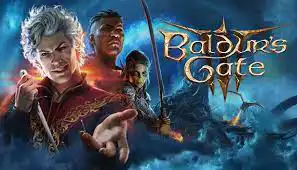Within the wildly popular game Baldur’s Gate 3, players are provided with a vast array of characters they can assume as their protagonist. This includes not only the predefined Origin companions but an option to craft their own adventurer as well. Two types of customizable characters are available. First, there's 'Tav,' essentially a blank canvas which is widely heralded as the first choice for many venturing into the game for the first time.
In contrast to the freedom that Tav brings, the game's developers also introduced a second unique choice named 'The Dark Urge.' 'Durge,' a Bhaalspawn and can belong to any race or class, but is plagued by a harrowing past that manifests as a Haunted One background trait. It adds an extra layer of complexity and story beats the game has to offer.
Choosing this character class doesn’t just add flavor to the gameplay—it fundamentally alters it. Despite being a recent addition, 'Durge' has become increasingly popular among players, especially those attempting what's known as an 'evil run'. The character’s inherent tension and nuanced background provide plenty of unique dialogue options and story beats to explore, weaving a narrative tapestry rife with intrigue and unexpected developments.

While the character customization in Baldur’s Gate 3 is extensive, allowing players to create a hero that truly represents their desired identity in the game world, some fans have noted that the personalized 'Tavs' can sometimes lack nuance. They argue that, compared to unique characters like the Dark Urge, they can fall short of providing equivalent depth and role-playing opportunities.
Character customizations such as race, class, and background each come with their own individual impacts on the game, shaping dialogue and interactions in meaningful ways. As such, many believe Durge is the central character in the narrative due to their more detailed history and character development opportunities.
However, not every player agrees with this sentiment. Preferences can vary greatly, and for some, the edginess of Durge’s storyline may be a bit too jarring. Certain gamers might lean towards a more hero-like backstory, finding the haunted, violent history of Durge a tad unsettling in comparison.
Those players tend to prefer creating a 'Tav' character and crafting their personalized storyline and background. In doing so, they have more control over their protagonist’s history and can dive into a narrative that tailors to their preferences more effectively.
Yet, Durge, a character with an established backstory, a depth of connection with main Bosses, and climactic duels at every turn, offers a visceral and emotional experience that many players find exhilarating. In this sense, Durge’s character seems ready-made for an indulgent gaming experience full of emotive storytelling and riveting gameplay.
This is not to say that 'Tavs' don’t serve their purpose. They offer strategic freedom and offer a kind of creative liberty that pre-defined characters like Durge do not. They reflect the gaming experience that allows players functionality to engage with the game on their own terms with their unique story beats.
However, for those willing to delve headfirst into Durge’s dark, complex narrative and history, the payoff can be exquisitely rewarding. Their heightened connection to the gaming world and the main bosses, coupled with the unique narrative intersections that arise from Durge’s backstory, cultivates a truly immersive gaming experience.
In total, while both character choices have their benefits and drawbacks in Baldur's Gate 3, the decision ultimately rests on the shoulders of the players themselves. Whether they prefer the blank slate a Tav offers, or the rich tapestry of Durge's dark narrative, there’s something to satisfy both ends of the spectrum. It all comes down to how each player wants to interact with the world of Baldur’s Gate 3.
Undeniably, this character diversity and customization are what makes Baldur's Gate 3 stand out in a sea of games. That said, mentions of 'The Dark Urge' being the game's most involved protagonist does bring up a larger discussion about character development and narrative structure in RPGs and how grounded, complex characters can enhance the gaming experience.
In essence, 'the Dark Urge' isn’t just a character but a narrative choice, a storyline within a storyline that, when explored, enhances the very gaming experience it is housed in. As gaming narratives continue to evolve and develop, the question continues to be asked: How much backstory is too much or too little? How do you balance the freedom of the unknown with the richness of a deeply rooted history?
One thing is for certain: regardless of the preferred route, players to Baldur’s Gate 3 are in for an adventure-filled journey of a lifetime. Whichever path they choose, the provisions for a rich, immersive experience remain, thanks to the careful crafting and narrative depth built into every corner of the game. In the end, the choice is entirely up to the players on how they wish to navigate and interact with the world of Baldur’s Gate 3.